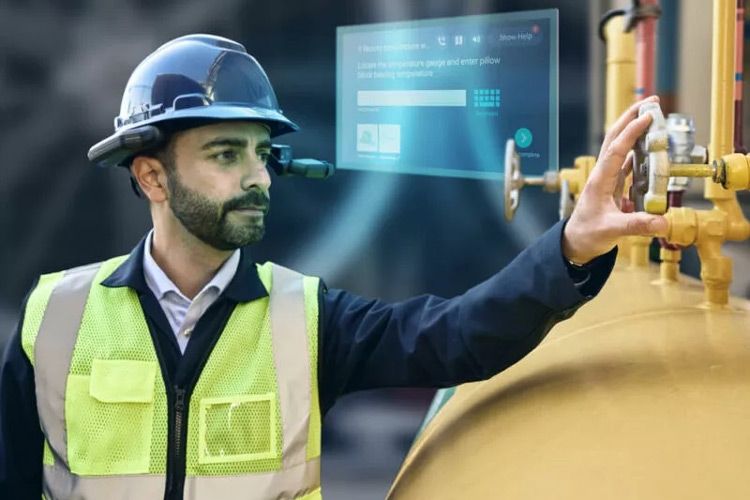The utilities industry needs to turn to digital transformation to combat a loss of skilled workers and a shortage of incoming talent.
By Gary McAuliffe
The ‘Great Resignation’, coupled with an aging workforce has impacted many of the critical infrastructure industries, and the electric & gas utilities industry is no exception. Utilities are critical to the delivery of mission-critical services and their workforce challenges can impact the entire sector. Exacerbating this reality, electric and gas companies are facing skills gaps and shortages unlike ever before. In the last 15 years, colleges and universities have seen a 50% decline in the number of graduating engineers, one of many skillsets the utility industry requires. To add to that, experts predict that within the next five to ten years, many utility companies will lose 50% of their current workforce to retirement.
Loss of skilled workers and lack of incoming workers have exposed the need for solutions that enhance and complement current hiring programs to bridge these gaps and ensure continuity. Many organizations are turning to digital transformation and technology solutions as ways to help mitigate the resulting challenges. One of these is augmented reality (AR)-enabled knowledge network technologies, which can help organizations preserve knowledge, improve remote field collaboration, and enhance training and onboarding processes.
Let’s dive into the staffing shortages a bit deeper. While this is an ongoing issue for companies around the world and regardless of sector or industry, the utilities industry requires a robust, well-trained staff to operate efficiently–and most importantly–safely. If you look at gas & electric companies specifically, they require experienced workers due to the unique hazards employees face in the field. The loss of a workforce with decades of hands-on experience, can result in severe consequences. An employee’s lack of access to proper knowledge and lack of understanding of how their organization handles dangerous and difficult tasks can lead to outages, downtime, and in worst case scenarios, deaths.
By 2023, 30% of critical utility operations (field, office, and mission-critical) will involve flexible working arrangements. So, how can leading utilities executives preserve critical knowledge, and find ways for seamless transitioning and training of new workers into front-line roles?
Companies need to be agile and embrace innovation in order to weather the storm of shifting remote work conditions. For workers to succeed in maintaining equipment and solving problems in a utility setting, they must have the tools, access to expertise (including remote access), and the data/learnings needed to complete tasks safely.

It is critical to build a knowledge network that will provide existing and new utilities workers access to the right data, people, and content to perform their job safely.
AR-enabled remote collaboration solutions help ensure field workers have the resources they need while providing service reliability and consumer satisfaction. In fact, AR and VR offer remote support to employees with on-demand access to tenured, experienced staff, as well as access to relevant information (e.g., manuals, inspection records, etc.), in turn reducing risks, improving productivity, and providing the knowledge needed for an inexperienced workforce to thrive.
For knowledgeable workers, AR and VR tools give them the ease of connection with the rest of their team and fast access to resources they may need to continue their tasks more efficiently. It also enables efficient knowledge sharing and capturing for posterity.
Organizations can implement AR to centralize their knowledge network through videos, images, digital work instructions. By leveraging other technologies like the internet of things (IoT) visualization, machine learning, and artificial intelligence (AI), field workers get access to the augmented support they need. This not only provides specific data at the right time but also captures the experience and processes (institutional and operational knowledge) from the organization so fewer people are put in potentially dangerous situations, can respond faster to unexpected situations, and even anticipate future needs.
In today’s workforce paradigm, utility organizations need to pay special attention to the challenges they will increasingly face in the next few years. The time to act is now. Organizations that offer remote collaboration capabilities will have a significant advantage over those who don’t.

Gary McAuliffe is Librestream’s VP of global energy and utilities. He is responsible for delivering workforce transformation to the frontlines of the utility, renewable energy, and oil & gas sectors. Mr. McAuliffe leverages his multi-decade experience in the energy sector to address critical workforce challenges associated with generational retirements, skilled worker shortages and institutional knowledge loss. Prior to Librestream, Mr. McAuliffe worked as the SVP Sales & Marketing for Innovari, a virtual power plant provider, Sales Director for Silver Spring Networks (now Itron), the number one utility field network provider, and President of Theorem Geo Associates, a consulting firm focused exclusively on the utility industry.
Contact Librestream: https://librestream.com/contact-us/?
Scott Ellyson, CEO of East West Manufacturing, brings decades of global manufacturing and supply chain leadership to the conversation. In this episode, he shares practical insights on scaling operations, navigating complexity, and building resilient manufacturing networks in an increasingly connected world.